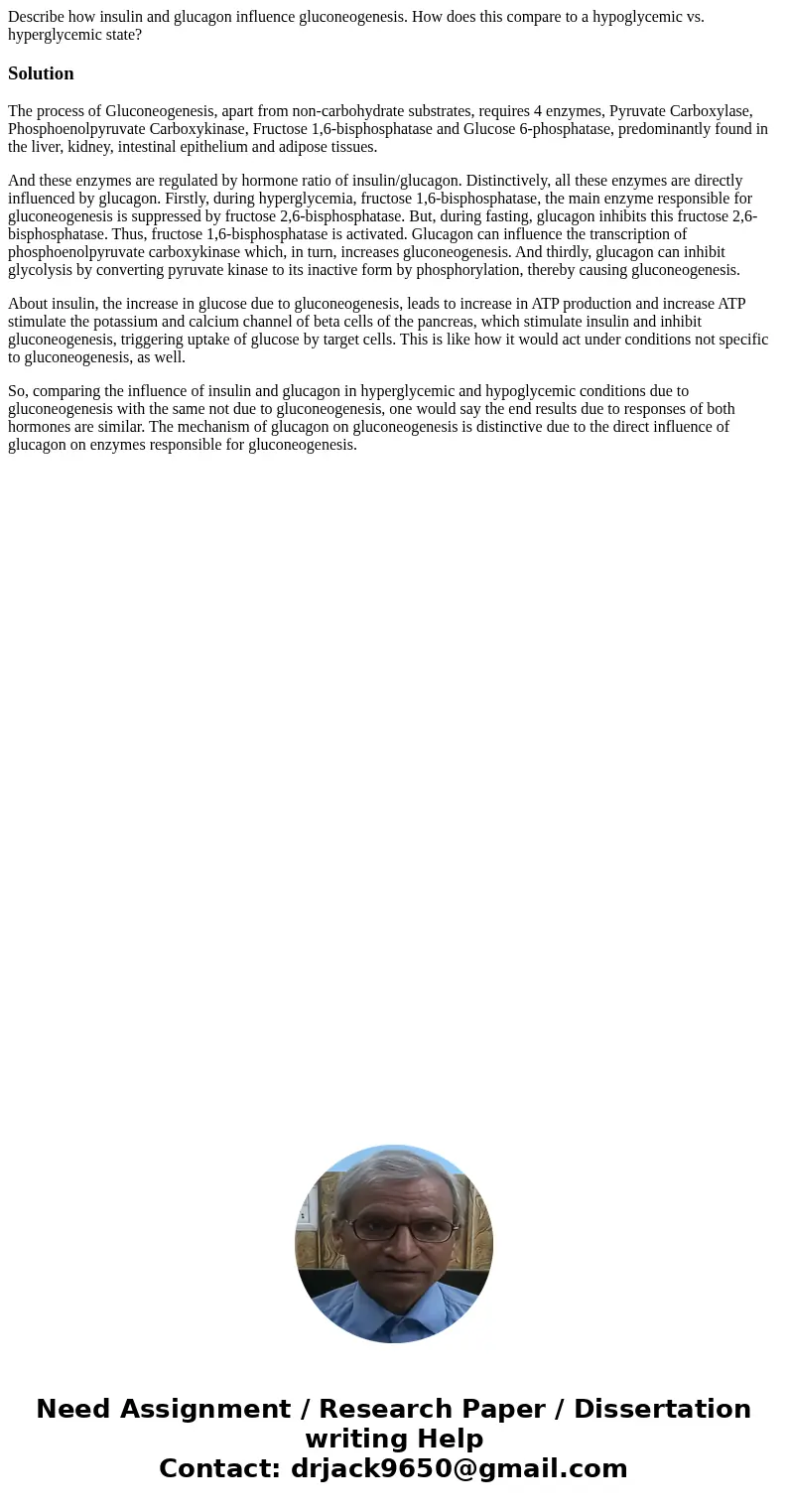Describe how insulin and glucagon influence gluconeogenesis
Describe how insulin and glucagon influence gluconeogenesis. How does this compare to a hypoglycemic vs. hyperglycemic state?
Solution
The process of Gluconeogenesis, apart from non-carbohydrate substrates, requires 4 enzymes, Pyruvate Carboxylase, Phosphoenolpyruvate Carboxykinase, Fructose 1,6-bisphosphatase and Glucose 6-phosphatase, predominantly found in the liver, kidney, intestinal epithelium and adipose tissues.
And these enzymes are regulated by hormone ratio of insulin/glucagon. Distinctively, all these enzymes are directly influenced by glucagon. Firstly, during hyperglycemia, fructose 1,6-bisphosphatase, the main enzyme responsible for gluconeogenesis is suppressed by fructose 2,6-bisphosphatase. But, during fasting, glucagon inhibits this fructose 2,6-bisphosphatase. Thus, fructose 1,6-bisphosphatase is activated. Glucagon can influence the transcription of phosphoenolpyruvate carboxykinase which, in turn, increases gluconeogenesis. And thirdly, glucagon can inhibit glycolysis by converting pyruvate kinase to its inactive form by phosphorylation, thereby causing gluconeogenesis.
About insulin, the increase in glucose due to gluconeogenesis, leads to increase in ATP production and increase ATP stimulate the potassium and calcium channel of beta cells of the pancreas, which stimulate insulin and inhibit gluconeogenesis, triggering uptake of glucose by target cells. This is like how it would act under conditions not specific to gluconeogenesis, as well.
So, comparing the influence of insulin and glucagon in hyperglycemic and hypoglycemic conditions due to gluconeogenesis with the same not due to gluconeogenesis, one would say the end results due to responses of both hormones are similar. The mechanism of glucagon on gluconeogenesis is distinctive due to the direct influence of glucagon on enzymes responsible for gluconeogenesis.

 Homework Sourse
Homework Sourse